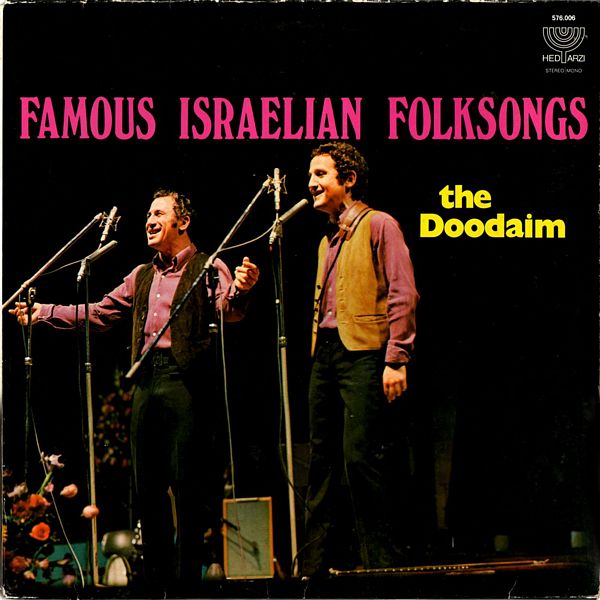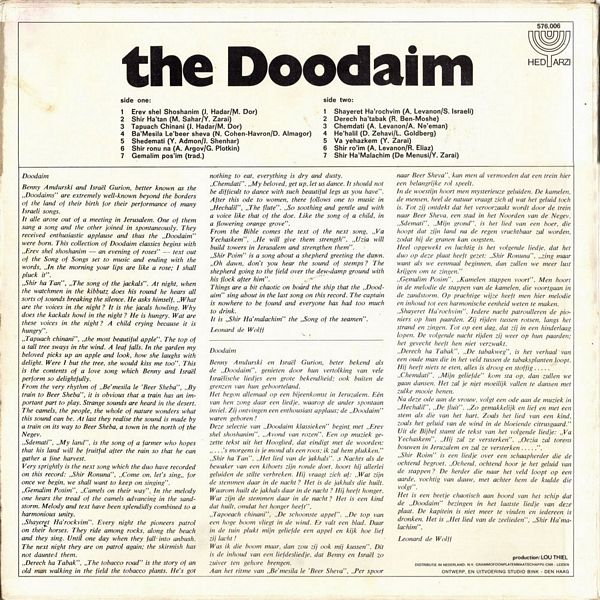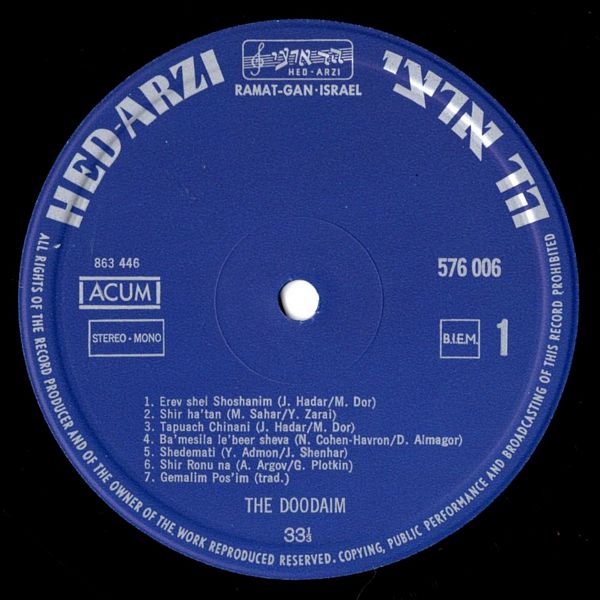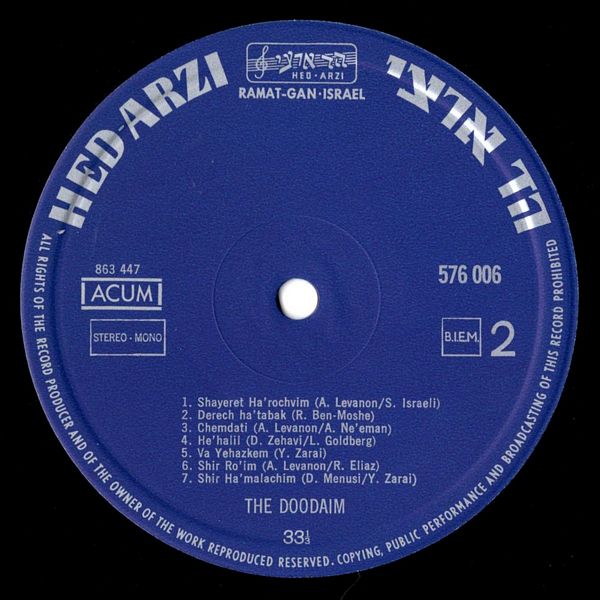

 |


 |
Sleeve Notes
Benny Amdurski and Israel Gurion, better known as the "Doodaims" are extremely well-known beyond the borders of the land of their birth for their performance of many Israeli songs.
It all arose out of a meeting in Jerusalem. One of them sang a song and the other joined in spontaneously. They received enthusiastic applause and thus the "Doodaim" were born.
This collection of Doodaim classics begins with Erev shel shoshanim (an evening of roses) — text out of the Song of Songs set to music and ending with the words, "In the morning your lips are like a rose; I shall pluck it".
Shir ha Tan (The song of the jackals). At night, when the watchmen in the kibbutz does his round he hears all sorts of sounds breaking the silence. He asks himself, "What are the voices in the night? It is the jackals howling. Why does the jackals howl in the night? He is hungry. Wat are these voices in the night? A child crying because it is hungry".
Tapuach chinani (the most beautiful apple). The top of a tall tree sways in the wind. A leaf falls. In the garden my beloved picks up an apple and look, how she laughs with delight. Were I but the tree, she would kiss me too". This is the contents of a love song which Benny and Israel perform so delightfully.
From the very rhythm of Be'mesila le 'Beer Sheba (By train to Beer Sheba), it is obvious that a train has an important part to play. Strange sounds are heard in the desert. The camels, the people, the whole of nature wonders what this sound can be. At last they realise the sound is made by a train on its way to Beer Sheba, a town in the north of the Negev.
Sdemati (My land), is the song of a farmer who hopes that his land will be fruitful after the rain so that he can gather a fine harvest.
Very sprightly is the next song which the duo have recorded on this record: Shir Ronuna (Come on, let's sing) for once we begin, we shall want to keep on singing".
Gemalim Posim (Camels on their way). In the melody one hears the tread of the camels advancing in the sandstorm. Melody and text have been splendidly combined to a harmonious unity.
Shayeret Ha'rockvim. Every night the pioneers patrol on their horses. They ride among rocks, along the beach and they sing. Until one day when they fall into ambush. The next night they are on patrol again; the skirmish has not daunted them.
Derech ha Tabak (The tobacco road) is the story of an old man walking in the field the tobacco plants. He's got nothing to eat, everything is dry and dusty.
Chemdati. "My beloved, get up, let us dance. It should not be difficult to dance with such beautiful legs as you have". After this ode to women, there follows one to music in Hechalil (The flute). "So soothing and gentle and with a voice like that of the doe. Like the song of a child, in a flowering orange grove".
From the Bible comes the text of the next song, Va Yechaskem (He will give them strength). "Uzia will build towers in Jerusalem and strengthen them".
Shir Poim is a song about a shepherd greeting the dawn. "Oh dawn, don't you hear the sound of stemps? The shepherd going to the field over the dew-damp ground with his flock after him".
Things are a bit chaotic on board the ship that the "Doodaim" sing about in the last song on this record. The captain is nowhere to be found and everyone has had too much to drink. It is Shir Ha'malachim the (Song of the seamen).
Leonard de Wolff